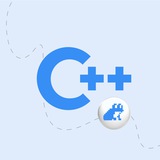tg-me.com/cppproglib/5691
Last Update:
Есть желание использовать современные языковые фитчи, но переписывать код в ручную долго и скучно, тогда можно воспользоваться помощью искусственного интеллекта😄
Для того чтобы сделать свой код более современным используй следующий промпт:
Refactor the following code to modern [Тут напиши стандарт] programming standards:
[Сюда вставь свой код]
Refactor the following code to modern c++23 programming standards:
int* createIntArray(int size) {
int* arr = new int[size];
for (int i = 0; i < size; ++i) {
arr[i] = i * i;
}
return arr;
}
#include <memory>
#include <vector>
#include <algorithm>
// Option 1: Return a std::vector (recommended for most cases)
auto createIntArray(int size) -> std::vector<int> {
std::vector<int> arr(size);
std::ranges::generate(arr, [i = 0]() mutable { return i * i++; });
return arr;
}
// Option 2: Return a std::unique_ptr (if you specifically need heap allocation)
auto createIntArrayUnique(int size) -> std::unique_ptr<int[]> {
auto arr = std::make_unique<int[]>(size);
for (int i = 0; i < size; ++i) {
arr[i] = i * i;
}
return arr;
}
Это достаточно простой и быстрый способ привести код к текущему стандарту. К сожалению результат работы промпта всё де придётся проверить, так как текущая реализация AI далека от идеала, но даже так времени можно сэкономить массу.
Библиотека C/C++ разработчика #буст
